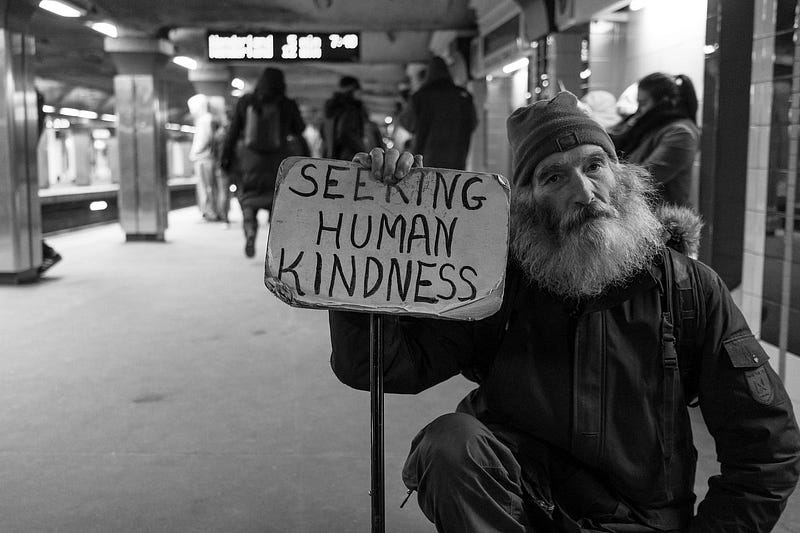Celebrating Freedom in America: A Call for True Equality
Written on
Understanding Independence Day
Independence Day in the United States is a time for reflection on freedom, yet it’s crucial to recognize that this freedom has not been equally distributed. The aspirations of the Founding Fathers did not encompass all citizens, and it is our responsibility to pursue the completion of their vision.
The phrase from Thomas Jefferson’s Declaration of Independence, “We hold these truths to be self-evident, that all men are created equal,” was revolutionary. It suggested that ordinary individuals could influence governance, and that power would stem from merit rather than lineage.
However, this powerful message was not universal.
Left Behind: African Americans
At the time the Declaration was signed, enslaved individuals were regarded as only three-fifths of a person. In 1852, renowned abolitionist Frederick Douglass gave a compelling speech during a July 4th celebration, condemning American slavery. He stated, “What, to the American slave, is your Fourth of July? I answer: a day that reveals to him, more than all other days in the year, the gross injustice and cruelty to which he is the constant victim. To him, your celebration is a sham.”
Although the 13th Amendment abolished slavery in 1865, African Americans were denied the right to vote for nearly a century. Legislative efforts such as the Civil Rights Act of 1964 made strides, yet racism and white supremacy remain prevalent.
Left Behind: Women
The notion of equality espoused by Jefferson was limited to men. Women would not gain the right to vote for nearly a century and a half after the Declaration's signing. Even today, full gender equality—regarding pay, reproductive rights, and more—has not been achieved.
The Equal Rights Amendment (ERA), which states that “Equality of rights under the law shall not be denied or abridged by the United States or by any state on account of sex,” remains contentious. In the 1970s, right-wing activist Phyllis Schlafly led the opposition, framing women’s equality as a threat to traditional family roles. Her rhetoric, while exaggerated, resonated with many and the ERA has yet to be ratified.
Dehumanization: A Broader Issue
Women and African Americans are not the only groups marginalized in this narrative. The LGBTQ community, immigrants, the elderly, and economically disadvantaged individuals also face exclusion. Similarly, religious minorities, including Jews, Muslims, and evangelical Christians, often encounter discrimination.
The impacts of dehumanization can be traced back to American plantations, where enslaved people were viewed as inferior. This mentality persisted in various forms throughout history, including the portrayal of Native Americans and Jews during the Holocaust.

Dehumanization is a root cause of numerous modern atrocities, from mass shootings to war crimes. It manifests in both large-scale violence and everyday interactions, such as social isolation and neglect.
As David Livingstone Smith notes in his work, “Making Monsters: The Uncanny Power of Dehumanization,” the act of seeing others as less than human leads to unspeakable cruelty. He explains that this dehumanizing mindset develops through categorizing people into groups and promoting the idea that one group is superior.
The Role of Genetics
The question arises: why do we engage in such destructive behavior? One theory suggests this inclination may be embedded in our DNA. Anthropologists argue that our ancestors, who lived in small communities, developed both cooperative and aggressive traits in response to competition for resources.
In today’s context, our survival does not depend on violent confrontations. Brené Brown, a bestselling author, emphasizes that engaging in dehumanizing language diminishes our own humanity. She urges us to recognize the humanity in everyone, particularly those with whom we disagree.
Promoting Radical Kindness
To combat dehumanization, social scientists advocate for a practice of radical kindness—extending compassion and understanding to all individuals. This approach involves engaging with empathy, patience, and humility.
Tara Brach, in her book “Radical Compassion: Learning to Love Yourself and Your World with the Practice of RAIN,” outlines a four-step framework for connecting with others:
- Recognize: Identify and acknowledge your thoughts and feelings without judgment.
- Allow: Create space for emotions to exist without immediately reacting.
- Investigate: Reflect on the underlying causes of your feelings.
- Nurture: Show kindness and care towards yourself, promoting healing.

Embracing radical kindness is challenging, but it is essential for building upon the revolutionary ideas of America’s founders. As I celebrate this Fourth of July with loved ones, I will keep in mind those who still face marginalization—women, African Americans, the LGBTQ community, immigrants, the elderly, the poor, and religious minorities.
This year, I will strive to embody an extra measure of kindness. Happy Fourth!
The video titled Celebrate America: You Chose to Celebrate Freedom! reflects on the enduring struggle for freedom and equality in the United States, highlighting the need for inclusivity in our celebrations and actions.